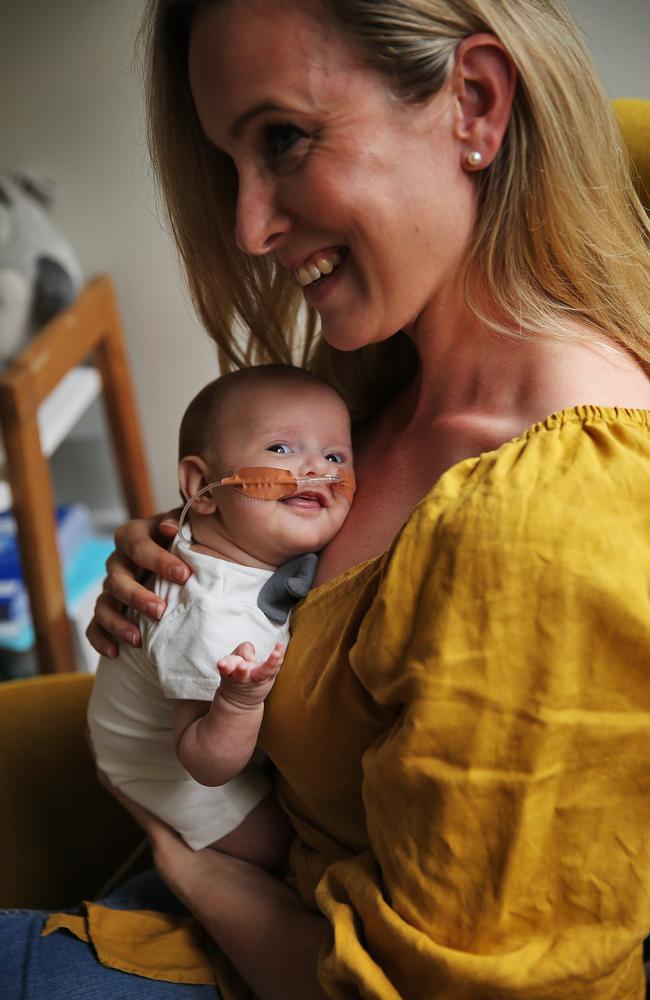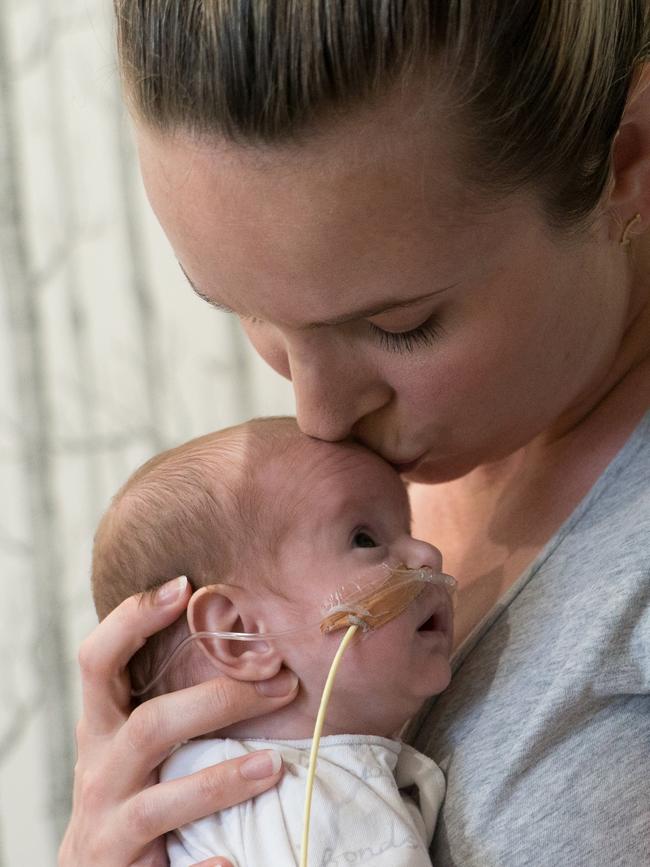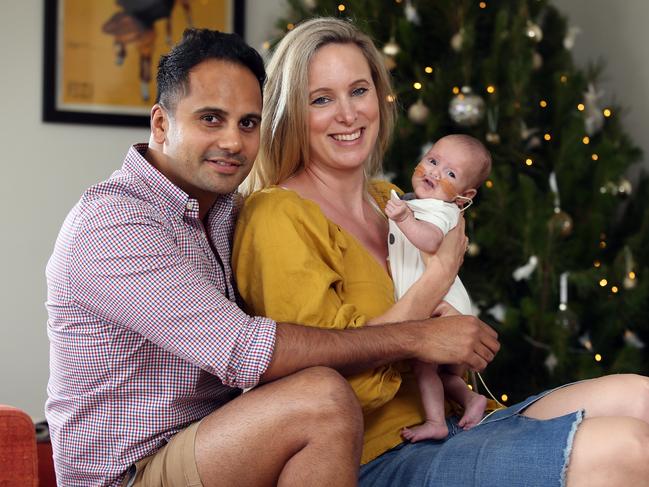Mum and dad get Christmas wish to bring premature baby home
Camille D’Cruz was born at just 31 weeks on August 16, weighing barely 1.1kg. After a tough few months, her mum Marieke — a former Australian Olympic swimmer — and dad Jason were finally able to bring their little girl home in time for Christmas.
NSW
Don't miss out on the headlines from NSW. Followed categories will be added to My News.
Marieke D’Cruz doesn’t need to write out a Christmas list because she already has her wish — to bring her baby girl home from hospital.
After problems with her placenta meant it could not support tiny Camille, she was born at just 31 weeks on August 16, weighing barely 1.1kg.
It was the start of a tough journey, the rollercoaster ride that comes with a premature birth.
“Our expectations were to bring home a bouncing baby and it would be all smiles and rainbows and butterflies,” Mrs D’Cruz said.
“But I had to let go of what I fantasised about and appreciate what was in front of me, that she is alive and she is now growing really well and she is beautiful and smiling.”

The new mum, formerly Marieke Guehrer, represented Australia in the 2004 Athens Olympics, and was a world champion in 2009 for both 50m butterfly and backstroke.
She never thought she would need to use her swimming training when it came to motherhood but it helped get her through.
“She was crying when she came out, but she looked like a miniature adult because she had no fat on her whatsoever — babies put that on in the third trimester,” Mrs D’Cruz said.
Professor Kei Lui, director of the Neonatal Intensive Care Unit at the Royal Hospital for Women ICU, said when the placenta is not providing enough nutrients to grow, it is safer for baby to be delivered.
Premature babies born at 32 weeks have a very good survival rate.
“But it doesn’t mean the journey is smooth. Camille had a bit of a rough course,” Prof Lui said.


Camille was aspirating her milk into her lungs and she was intolerant to a cow’s milk protein which she got via her mother’s breast milk.
“It’s difficult for the premature baby as the intestines do not work as well, they are still meant to be on the inside,” Prof Lui said.
Mrs D’Cruz had to go off all dairy before she could give her baby breast milk again.
“She still has a nasal feeding tube and it’s a long, slow run. She had to have formula while I got dairy-free. It can take up to three weeks to get out of your system,” she said.
She used her Olympic training to handle the stress and anxiety.
“You can’t control how fast your competitor will race but you can control how fast you race, so it was the same,” she said.
“I couldn’t control how Camille was born, how healthy she would be, but I could control how stressed or emotional I got about it.”

Mrs D’Cruz and her husband Jason took part in the hospital’s famed Family Integrated Care model where parents are hands-on with the care of their fragile babies and encouraged to cuddle them up to six hours a day.
The parental touch of love results in babies putting on weight faster.
“We were part of any major decision made about Camille. It makes sense the parents know what is best for the baby — we are with them every day, watching every move, and pick up on things the staff may not have noticed,” Mr D’Cruz said.

Camille was discharged weighing 2.6kg and requires oxygen support for the short term.
“It means everything to have her home. She is the first grandchild on both sides and they are all coming here to celebrate so she will be doted on,” Mrs D’Cruz said.
Those who wish to contribute to the care of these tiny babies can donate to the Royal Hospital for Women Foundation, which funds more than 70 per cent of the equipment in the NICU.
* To learn more or to donate, go to royalwomen.org.au/Prematurebabies
Originally published as Mum and dad get Christmas wish to bring premature baby home


